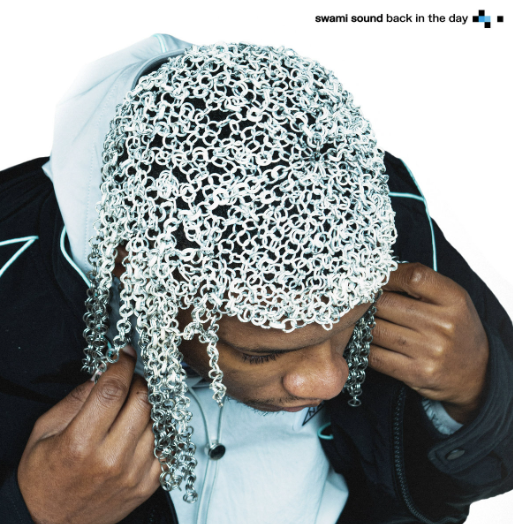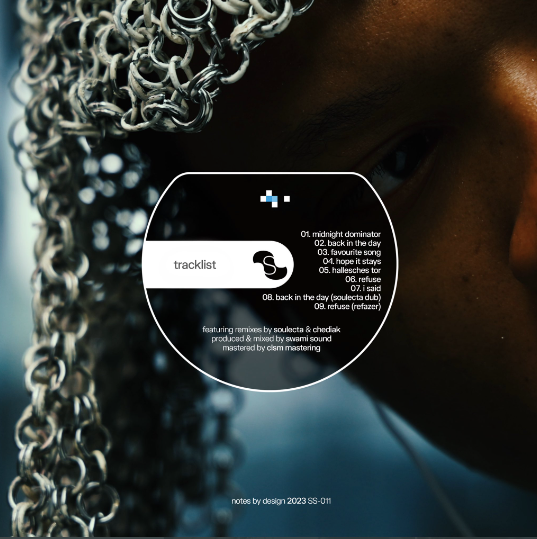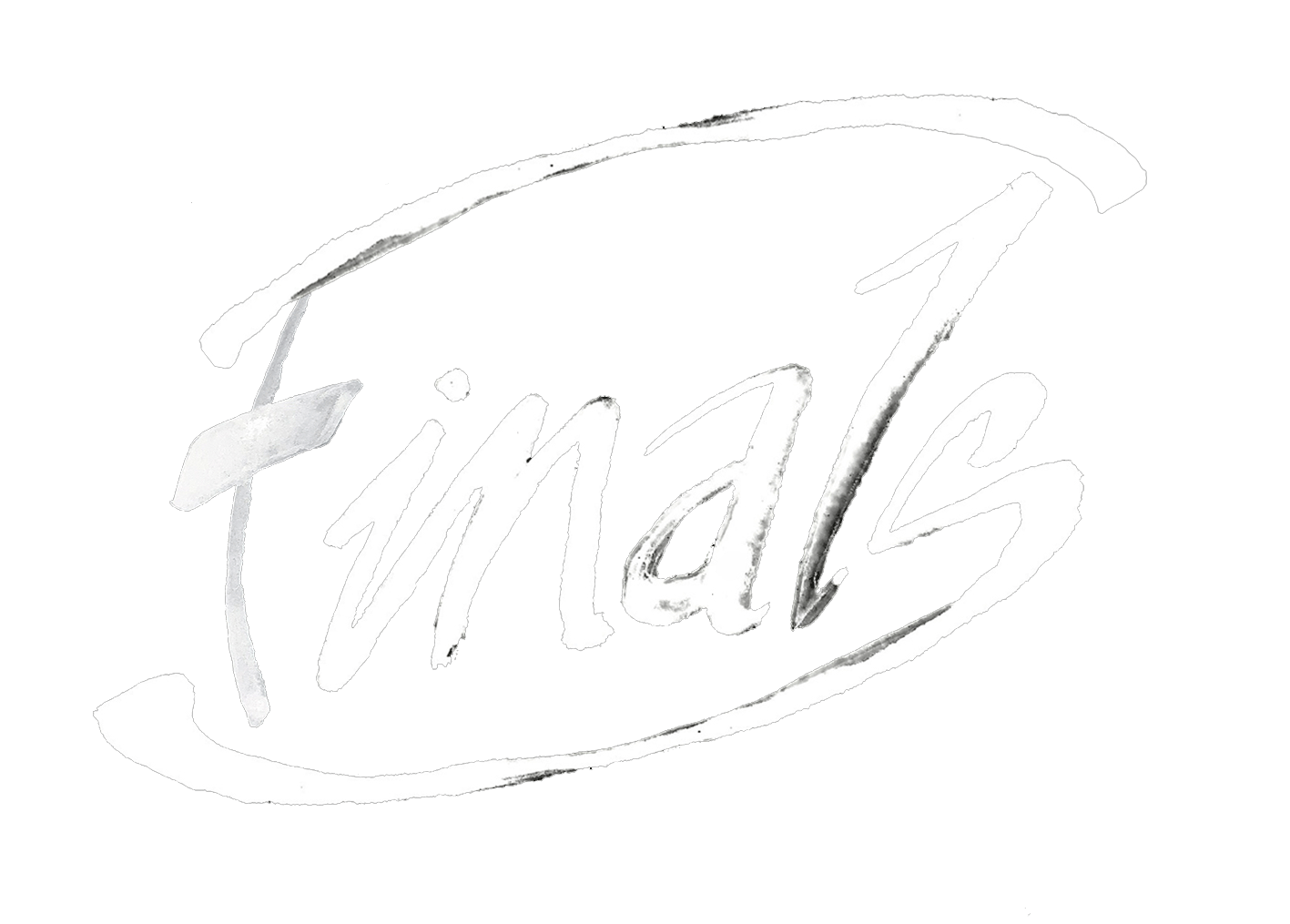
My pitch for Swami Sound is basically: come for Bronx-raised/Bushwick-dwelling producer’s garage edits (him calling his mix series “two-step verification” is funny), stay for 25-year-old’s fearless debut album Back in the Day.
That would be the 9-song document he dropped today but has been working on “for the past six years,” a personally seminal piece that references long-held relationships and jumps off of garage into dubstep, drumnbass, jungle, R&B, and baile funk. It’s great.
After meeting on Twitter DM, we caught up on the phone. Topics discussed included the cumulative power of first albums, Zelda, growing up in NY, experiences in digital brotherhood, and his past life as a social work student.
What's up, how are you?
Good, good what’s up, what’s going on?
I’m just reading really depressing shit about…I’ll spare you but, social worker stuff.
Social work stuff? Nah, I mean, I can talk about it.
Well I just learned the rate of suicide for Black kids is up 73% from 1991-2017 — while for other racial groups the rates have gone down.
What’s the age group?
Teenagers.
Black teens. I’m so sorry, there’s a siren. I live on Bushwick Ave and it gets crazy around this time. That’s crazy though. I feel like I’ve read that. Doing my research, I found too many figures that were outright depressing. Suicide rates, and depression rates, and how it correlates with inner city youth, and poverty, and poverty policy…I was pretty bummed reading all that stuff.
It’s overwhelming.
Yeah it’s a lot. It was very real when when I was getting my BSW (at NYU). The place I practiced my field at was the same mentorship program that I was in when I was a high schooler. It was called Step Up with the McSilver Institute. They were under NYU. So they had masters students in their MSW (Master of Social Work) and they placed them in high schools as mentors and counselors in public schools. Most of the client base were Black and Hispanic kids. When I was in high school I was one of them, kids who were recommended by their guidance counselor of, like, hey this kid demonstrates some social issues, or academic issues, and then they do the intake and all that. I was one of those students and my mentors were NYU students who were getting their MSW. Then around the time of graduating college, I didn’t know what to do, so I went back to the McSilver Institute and I was the first ever BSW student mentor and the youngest ever. And the first alum of that program to work in it. My supervisors were my mentors when I was a kid.
That’s crazy. We’ve been DMing, but we have a similar experience. I’m a social work intern working at Brooklyn Tech in that same role. But I’m 15 years older than you.
Yeah, what do you think about it?
I feel passionate about it, I feel like I’m working with students in a meaningful way on their issues. It’s sad because I’m not going to be there after May. From day one I’ve been terminating with them, letting them know it’s a time-constrained relationship. I want them to have skills to rely on and not rely on the relationship.
Terminating is a weird experience. I don’t think anyone is really prepared. Once you start getting somewhere, it’s like ha ha. No.
It's interesting talking to you about it. But I do wanna talk about music.
By all means.
I read that you grew up in the Bronx listening to alternative rock. Did you fit in, in your environment?
I fit in with my cousin, which was my environment. I had a hard time engaging with people my age. In my later teens I learned how to fit in, but then I wasn’t attached to alternative rock. I went to middle school in Manhattan for half of middle school, and there I was able to find people who liked what I liked, alternative Black kid, watching anime, listening to 3 Days Grace.
What's the pros and cons of growing up in New York City?
A sense of independence is integral. By 11 I was using the train by myself, traveling hour long distances alone. The cons is zoning. The inherent segregation is pervasive, and you don’t know you are a victim of segregation until you realize that this kid who grew up in Maspeth, Queens, ended up in a better public school than you, and had better people guiding them. There’s a lot of luck, growing up in New York City. There’s a lot of nurture, but also nature. It’s about how you respond to circumstances, that is going to give you peace, mentally.
What is the connection between you and dazegxd and Dirty Bird? Are y’all a collective?
Eldia at large is a collective. International producer collective based on the internet. Gum, now – formerly Dirty Bird, but in light of the cease and desist – me, Gum and Daze, we are essentially just three internet based friends who are now real life friends, who have intersecting goals, and individual lanes where those goals meet. Three different kinds of music in the same realm. We have a similar vision. We collaborate on shows, and advise each other, and treat each other like brothers. That would be Eldia NYC as it delineates from Eldia at large. Gum is based in Virginia but he travels to NYC a lot. We met in college.
Are you bringing something to music that’s been missing?
I’m bringing my most authentic self, my life, my soul. One could say I’m bringing something back. But my whole thesis behind it is, this is the best thing I can do. Using all my strengths to deliver a sound. It just happens to be something people find nostalgic, and people of different generations can relate to. I didn’t enter the garage realm with the intent to bring it back. It was just kind of the best thing I can produce. I also do dubstep, drumnbass, breakbeat.

On Back in the Day you branch off the UK stuff in a cool way. What does that album title mean to you?
Everything. Heartbreak. Pain. Growth. Memories. My response to my upbringing. The amalgamation of everything in my past.
Sometimes you’re in uncharted waters genrewise, like “Refuse.”
I’m still questioning how people would sonically describe “Refuse.” I put that out on the fly, to coincide with a mixmag feature, and now it’s a single off the project. What I was trying to do was capture an emotion instead of a sonic. So it pushes an envelope, referencing Burial, referencing Floating Points, and the vocal part is about a breakup – but the meaning behind it is an overall contemplation of myself in relationships. It’s my message to myself about how things have changed.
I love how it segues to “I Said.” I love that song. That relaxing drumnbass vibe.
Songwriting wise, I don’t even know what I’m saying. But everytime I talk about it I say it’s a song about my sister. I wrote it in 2019 and it’s about the role I have in helping out my sister when she needs me. And there’s a way you can design your fate in a way. Without commanding the future, there’s a way you can do things for yourself. That’s a big lesson my sister taught me. The complicated thing is, as much as I want to differentiate myself, I have an obligation to take care of my nieces and nephews, and there’s a push and a pull. I’m mixing in drill elements with the drumnbass, and at end, jungle. I’m weaving between lives, different sonics, and it came together really well. I hope people love that song. It’s the last song, conceptually, on the album, and I hope people don’t sleep on it.
What’s the most straight ahead garage song on Back in the Day, the Soulecta Dub?
Yeah the Soulecta Dub, or Hallesches Tor, which is a direct reference to an MJ Cole song, a remix of “Mindless & Broken” by 3rd Core. The artist Tor showed it to me. The Soulecta Dub, he knew what he was doing when he made that. You can get remixes that are kind of mid, sometimes, but out of all the dubs he’s made, the Back in the Day Dub is like, how are Americans gonna react to this? It’s four on the floor, not too garagey, it’s house, but not super UKG, it sounds like a remix of a pop/R&B song that came out in 2007-2010. Like my Ne-Yo edit.
I want to talk about “Refuse Refazer.”
It’s pronounced re-fa-zay because it’s Portugese, for re-face. It’s Chediak on the track, from Sao Paulo. Chediak is one of the producers on the original “Refuse” who gave it a baile funk, almost dub feel. When I approached him to make a dancier version, it turned it into dnb. The verse he does was actually meant for the original.
Did you feel comfortable as far as arranging and songwriting on this album?
Yeah the most uncomfortable thing about Back in the Day was starting it. I started it with the cover art. And then I remember when I first thought of it, it was supposed to be titled Swami Sound. And I wanted it to be my last Swami Sound project. I don’t know about that anymore. But there was a meaning behind it from the get-go. For the last six years I’ve been revolving around these 7 songs. And the remixes came along as the album rolled out. This is me closing a chapter on a portion of my life. You get that sense of closure. It starts with the oldest song and the last song is the most recent.
People say you spend your whole life writing your first album.
Honestly, that’s pretty much what happened.
Who comes to a Swami Sound show? Like you sold out one at Elsewhere coming up.
The majority coming to Elsewhere will be coming from TikTok cuz they saw the TikTok of the last show I did in New York City. There are going to be a lot of new fans, so that’s a good thing. New fans of Zhang, consistent goers of Stonie Blue. People who like dance music who are going to come and dance. Sometimes I’m nervous that it might be too white, but it’s well represented and people have told me that. There are people of color, women, guys, queer people. I haven’t tripped too hard about the demographic but it’s mostly people my age. And then recently I played to an older crowd, and they were like yo we love what you do. So I guess I have a broad appeal. And this is my first 21 and under show.
Gotta show love to the kids. If we could talk about UK music in general, what excites you so much about this other place and time?
I love where it hits between pop and R&B, it’s mathematically in the middle of R&B, disco, electronic music, Black music. If you ever played Zelda Breath of the Wild, but you can throw anything in the pot and you’ll get something back. 2-Step, UKG, garage house…you can get every aspect of music in the last 60 years. Producers like Jackum makes em with disco samples. Even Arman Van Helden’s stuff with A-Trak. Soulecta will sample pop songs, like Central Cee. Then you’ll have Conducta pushing things in the UGK techno world. I like that I was able to create my own pocket in it while respecting the culture behind it. It’s so open-ended, you can push it in different ways. It will never die because you can go all-in.
I feel like that’s you, you’re the open one. Some people are snobby but I get unpretentiousness from you, willing to fuck it up, do something different.
I thought about it. Is it not two-steppy enough? Is it broken enough? But it doesn’t make me too uncomfortable. A bunch of people like my shit. It’s not a paralyzing question. Those who like it, needed this. There’s a big difference between me and people who “make UKG.” They follow a rulebook. But there are no rules. There are maybe swing settings, or some programming that’s a blueprint that I follow. But everything else is do what the fuck you want. Otherwise is it really my music? Where would any of the greats be if they didn’t do that?

Comments
Leave a Comment